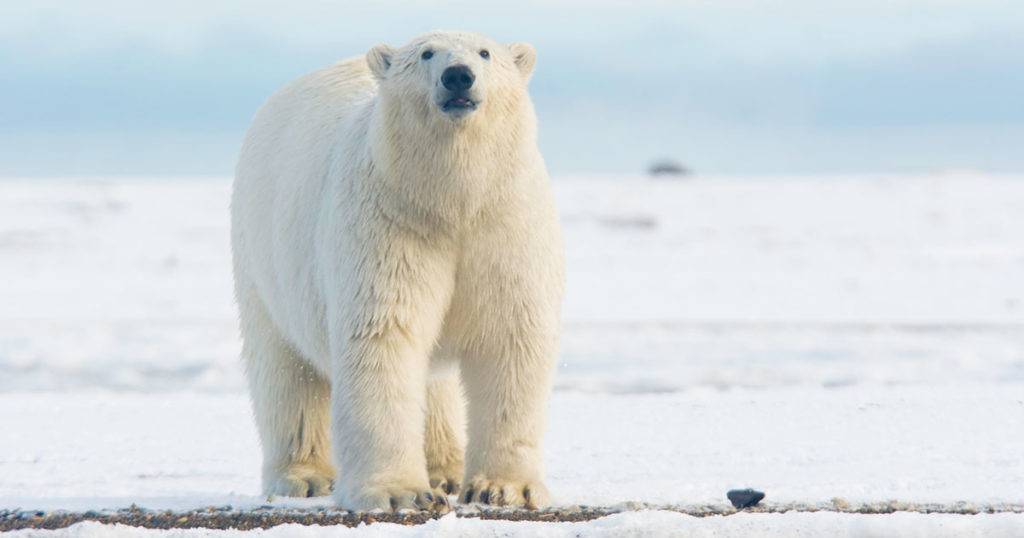
In the first line of John Updike’s 1992 story “Playing with Dynamite,” a man named Fanshawe, behind the wheel of his car, reflects on the surprising return in his old age of a facet of childhood that he calls the mutability of things—the readiness of a chair to become a leggy animal in the corner of his vision or the lights of oncoming cars to turn into large wet cherry blossoms floating on his windscreen. Later, in the bathroom, he considers the tub, in the corner of his vision, aware that at any moment it could become a polar bear and maul him. No tub has threatened me, but a pile of books can shift into a cat, a pile of clothes becomes my dog, a tree branch becomes an arm. It happens a lot. In that wonderful book The Lion, the Witch, and the Wardrobe, the witch and her dwarf become boulders and then, with no more required than a twitch, become themselves again. It happens in the blink of an eye.
In P. L. Travers’s book Mary Poppins, the twins, John and Barbara, open their eyes as babies to a world at play. They understand bird language and converse with the rays of sunshine visiting on their windowsill, and though by their first birthday they cease to understand half of the life around them, that world goes on. Stephen King, about this other world—this sense of something going on behind or under the layer we’re presented every day—says reality is thin and slippery, and sometimes you fall through, as if through thin ice. Maurice Sendak wrote about it too, and his character Max discovers this other world in Where the Wild Things Are.
When as an old man Fanshawe finds himself again amidst things changing their skins, it’s not an entirely benign world—that polar bear, the flowers blocking his vision, himself braced for what is to come—but he doesn’t mind: he takes a backseat in his life, both surprised and at the same time not, by what he sees. When his wife tumbles past him down a flight of stairs, he feels, watching her, the same way he does about the world in general: “Polite astonishment, underneath a high hum of constant grief.”
He attributes the shape shifting to his boredom with the rules of the physical universe, which he hardly cares about any more. It’s as if the laws that kept the world orderly—kept things in their own places, tubs sitting quietly in bathrooms and polar bears at zoos—have melted away. Maybe, he thinks, objects can travel faster than light and maybe we all do have immortal souls.
What for Fanshawe in his world is an absence of the laws feels to me in mine more like a resizing of them: the rules have shrunk and, as with a low fence, I can step over them. That’s what Max does, turning his back on his bedroom to step into a forest. Then he invites a rumpus.
But as Max learns with his Wild Things, one doesn’t in the end want such power. One doesn’t want to rule alone in a private world but share a world, even if it is alive with unexpected bears. What’s a bear, after all, when the regular real world is so ready to eat us up? Besides, as Fanshawe reflects, it wouldn’t be the end of the world if that tub took on the shape of a polar bear and mauled him. Then he goes a little bit further: “Strange to say, even the end of the world wouldn’t be the end of the world.”
Fanshawe is older than I am, and I still don’t know the world without consequence that he inhabits. For me, the world I visit sometimes on the far side of the fence starts off jolly but shape shifts to become threatening or just plain incomprehensible. If I visit it regularly, will it become familiar? Which world is the world, the real one? In Alice Munro’s story “Differently,” a woman reviews her past when she visits an old acquaintance, and decides the world she lived in when young had been a world of sham. Upon leaving the acquaintance’s house, she puts aside her thoughts about the wild emotions of her youth, her actions and reactions, and, as she walks through her old neighborhood where even the mountains in the distance appear to be only a backdrop, she thinks instead of the serenity of quiet afternoons at the bookstore where she used to work, when a certain slant of light and the complicated reflections in the windows gave an accidental clarity. Is the world really like this, I wonder, really so unaccountable? As a friend of mine likes to say, nothing is true or false but depends on the color of the lens you look through. “Y es que en el mundo traidor / nada hay verdad ni mentira: / todo es según el color / del cristal con que se mira.” The line is from the poet Ramón de Campoamor. El mundo traidor, he says, the traitorous world. Is it betrayal if no promises were made? While I reflect on that, in the corner of the room something moves where nothing should and as I blink, I realize it is nothing out of place, just a few things shifting into place, alighting, as if coming home.

